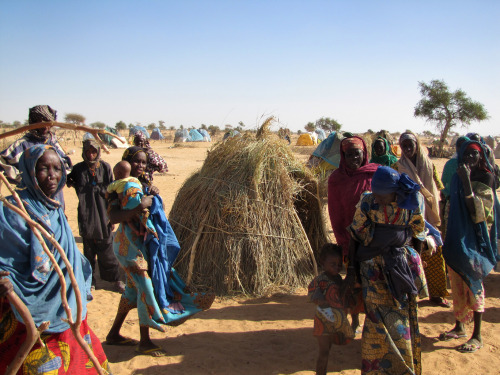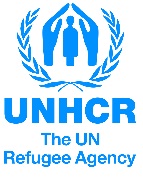UNHCR struggles to help tens of thousands newly displaced by Boko Haram in Niger
 An estimated 100,000 people fled regular cross-border attacks by Boko Haram on villages in Niger’s Diffa region in the past three months. They relocated along Route Number 1 and now live in makeshift shelters. ©UNHCR / BOUBACAR BAMBA
An estimated 100,000 people fled regular cross-border attacks by Boko Haram on villages in Niger’s Diffa region in the past three months. They relocated along Route Number 1 and now live in makeshift shelters. ©UNHCR / BOUBACAR BAMBA
UNHCR and its partners are struggling to help an estimated 100,000 people newly displaced in recent weeks in south-east Niger’s Diffa region in attacks launched by Nigeria’s Boko Haram insurgency group. Our team in Niger says the situation is very serious with acute shortages of shelter and non-food items for the displaced. These include local villagers, internally displaced people from Niger, people who have been displaced several times and Nigerian refugees who were staying with host families or in sites for the displaced in a 10 to 30-km belt of land between the River Komadougou and Niger’s Route National No.1. Some 170 villages have been left empty in the Diffa region.
For more information click here
“They need somewhere to settle in peace to regain their dignity”
 Yebi transit site, in Bosso, Diffa region, in south-eastern Niger
Yebi transit site, in Bosso, Diffa region, in south-eastern Niger
Interview with Aissami Abdou, MSF field coordinator in Diffa, south-east Niger, about the situation of the thousands of people who fled from Lake Chad at the beginning of May.
How is the current situation of the population that fled from Lake Chad?
The situation is critical; most of them are settled around two camps, one in Bosso and another one in Nguigmi, two towns located near the lake. Some of them are still around some other villages not far from the lake. They came out from the islands after the evacuation order from the authorities, following the violent attack of Boko Haram on Karamga Island on 25 April, where many Niger soldiers were killed and some were declared missing. Then, they settled randomly as fast as they could to save their lives and did not prepare for anything.According to the numbers provided by the regional authorities, around 11,200 persons arrived in Nguigmi while 13,000 arrived in Bosso from the islands in the first week of May. Moreover, some 15,000 were sent to Gaidam town, in northern Nigeria, via a transit site in Diffa.
To read the full interview click here
Diffa refugees feature on CNN alongside UNHCR’s partner, the International Rescue Committee
All that 14-year-old Bintou and her little sister Ma'ou, 12, have of their former life in Nigeria are tattered photos of their parents.
Bintou curls up and buries her face, her shoulders shuddering with each silent sob. Ma'ou seems to have utterly internalized her pain, and speaks in a numb monotone.
They tell us they want to go back to Maiduguri, but for now they can’t.
They are orphans – their mother died of natural causes before they can remember, and their father was killed in a Boko Haram attack about five months ago. We find them living with their aunt on a small plot in Diffa, Niger, uncertain about a future they are now forced to navigate alone.
Source :http://edition.cnn.com/video/data/2.0/video/world/2014/06/09/pkg-damon-nigeria-orphan-boko-horam.cnn.html
The UNHCR Representative in Niger, Mr Karl Steinacker, answers questions from the BBC and speaks about the massive influx of people fleeing the violence in Nigeria as well as the humanitarian challenges in Diffa region.

